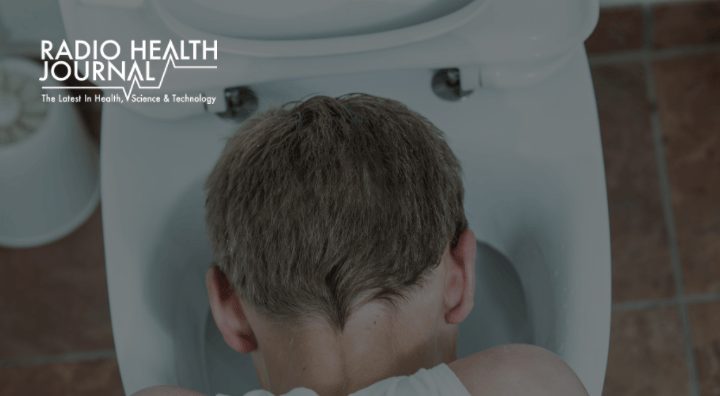Children with serious chronic diseases often have a tough time transitioning from pediatric care, which has much support built in, to adult care, which has to be managed by the patient. Experts discuss how parents can make it easier with a gradual transition.
Guest Information:
- Dr. Maria Ferris, pediatric nephrologist and Associate Professor of Pediatrics and Medicine, University of North Carolina-Chapel Hill
- Dr. Miranda Van Tilburg, gastroenterologist and hematologist and Associate Professor of Medicine, University of North Carolina-Chapel Hill
Links for more info:
16-49 Chronic Disease Kids Growing Up
Nancy Benson: Helicopter parents often have trouble backing off and letting their kids fail. But it can be especially difficult and heart-wrenching when a child has a chronic illness. However, experts say helicopter parenting in cases like those could have dire consequences.
Dr. Maria Ferris: When the parents have difficulty letting go of managing their children’s condition these adolescents and young adults have difficulty learning to manage their condition. So helicopter parents are not necessarily the best thing for these kids to learn about managing their conditions.
Benson: That’s Dr. Maria Ferris, a pediatric nephrologist and associate professor of pediatrics and medicine at the University of North Carolina at Chapel Hill. She and her colleague, Dr. Miranda Van Tilburg, associate professor of medicine in the division of gastroenterology and hematology, also at Chapel Hill, want young patients to learn how to manage their own disease before they graduate from pediatric care.
Dr. Miranda Van Tilburg: In pediatric care treatment is always a triangle between the child, the parent and the physician. And then in addition to that often for these kids who have chronic diseases there are other providers that are in the clinic and available to them while they are there for their visits. So these might be dieticians or social workers or psychologists or whatever the family needs. There’s often this whole team around it. And people grow up with that team and that team approach. They really like their doctor, they’re very close to them, the doctor sees them gown up, they’re close to their parents, the doctor’s close to the parents. And all of a sudden all of that needs to stop.
Benson: Van Tilburg says suddenly the young adult is under the care of an adult provider and no longer has access to that team of specialists he or she is used to.
Van Tilburg: You need to go and find these other services somewhere else. The adult provider often is not very open to seeing you together with your parents [laughter]. They want to see you by yourself. And in addition you have a new person in front of you that you don’t know, you don’t trust yet, doesn’t know you, cannot just jump in when something is happening and go, “Ok, we’ve been through this before. I know this, I know your disease,” and all that kind of stuff. So it’s a really difficult thing for people to do.
Benson: Van Tilburg and Ferris have devised a questionnaire to help reveal what adolescent patients need to know about managing their disease.
Ferris: The questions we asked basically are: Can you name your condition? Can you name your medications? Can you name your special diet? Can you name your allergies? Can you tell us if you make your own medical appointments? Can you tell us about how to go about finding new doctors? Can you tell us about what’s going to happen when you become an adult? So when the answers are no and you confirm the answers then we know the kids really are not prepared to go to the adult world, or prepared to self-manage their conditions.
Benson: That shouldn’t happen, Ferris says… and kids need to learn about their disease management as early as possible so they’re more than ready in plenty of time.
Ferris: The first thing I tell my patients when they come into clinic, no matter how old the kids are, particularly if they are eight years of age and older, is to have the parents share the knowledge with their kids and share the management of the medications that come with the kids. Don’t do everything for them, because if you grab them while they are still young, the pre-teenage years, they will be more accessible to learn and to follow a parent’s suggestion.
Benson: Van Tilburg adds that kids can learn to be a team member when it comes to managing their own disease.
Van Tilburg: And it can be small little things. If a child is on a dietary plan you might ask them to start cooking, or at a younger age start preparing things with you, start picking out things together with you, start reading labels so they can see whether this cereal is something they can or cannot eat depending on the content and what they does for their disease. So if you have diabetes you don’t want the high sugar cereals, if you have kidney disease you don’t want to have something that has a lot of salt in it for example. So these are things that they can start doing together with you at a fairly young age.
Benson: Van Tilburg says responsibilities should increase as a child gets older.
Van Tilburg: For example, in eleven, twelve year olds you might want to know that they know the name of their disorder and the name of their medications and what their medications are for and the side effects of them. When you talk more about a sixteen or seventeen year old you might want to ask them, “Your medication is running out. Please call the pharmacist to refill it and go and pick it up,” so that they develop those skills. And the first time you ask the sixteen-seventeen year old to do that they’ll go, “I don’t know how to do that! I’ve never done that!” And they would like to put that responsibility back to you.
Benson: But Van Tilburg says that with a little encouragement, your teenager will do just fine.
Van Tilburg: But if you just gently sort of warmly support them and say, “Yeah, no you can absolutely do this. It’s okay figure it out, I’ll be here if something goes wrong.” It’s not a difficult task. They can totally do it, but they might be worried about it. Once they do it that gives them a sense of accomplishment and a sense of control over the disease. It’s something that they can do.
Benson: Ferris says setting these kinds of goals helps kids to develop what she calls a locus of control.
Ferris: We ask the patients if they think that their disease is going to be better of they do something about it or if they don’t do anything about it. Are the problems with their disease related to chance, bad luck, or is this something that they can do something about? Is this a condition that they can help manage the course of the disease? And when the kids think that it’s by chance alone, they don’t do so well. Whereas those kids that believe and know that they have an ability to manage their conditions, or an ability to impact the way their health is, they do better. Children will develop an internal locus of control if they can be successful at certain tasks. So if you put a child in a math class that is way beyond what they’re ever going be able to do – let’s just skip three grades and put you I there – that is not going to be good for their locus of control when it comes to math. But when you put them in something that is too easy it might not also be good. So you want them to be right in that middle where they are challenged, but they are still going to be successful.
Benson: Ferris says it’s very common for teens to get lazy about taking their medications, but that parents need to let go even in this area…up to a point.
Ferris: One of the things that you have to do when you start letting go, you have a check and balance system. So you let them have the medication management for a week, but at the end of the week if you have a pillbox you would go over that and make sure that they actually swallowed it. So you really have to work and figure out ways that would work with your particular child.
Benson: That’s scary for parents… and Van Tilburg understands.
Van Tilburg: And they’re teenagers – they’re going to be terrible! They’re going to forget, they’re going to eat the wrong way. They want to fit in with their friends and all these things. So I know it’s a really scary time to let them practice with their health, which is what you are doing, what I’m asking you to do. But it is a really good thing to do that in small steps so that your teen eventually will be prepared as a young adult when they have to move away. Lots of these children will go to college one day, for example, and they’re going to have to manage by themselves. So it’s good for you to be there in the background and watch them. But give them that responsibility early and start to develop it over time.
Benson: It’s natural for parents to want to protect their kids, particularly when they have a chronic health condition. However, research shows that being overprotective can have negative consequences, especially when it comes to developing disease management skills.
You can learn more about our guests Dr. Maria Ferris and Dr. Miranda Van Tilburg by visiting our web site at radiohealthjournal.net. Our writer/producer this week is Polly Hansen. Our production director is Sean Waldron.
Sign up to receive email updates
Enter your name and email address below and I’ll send you periodic updates about the podcast.











Leave a Reply